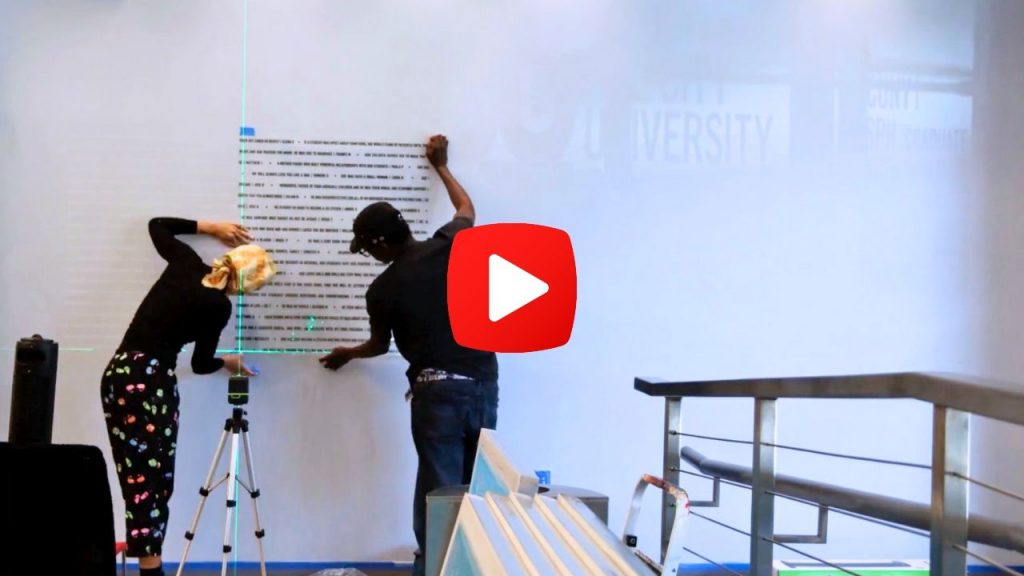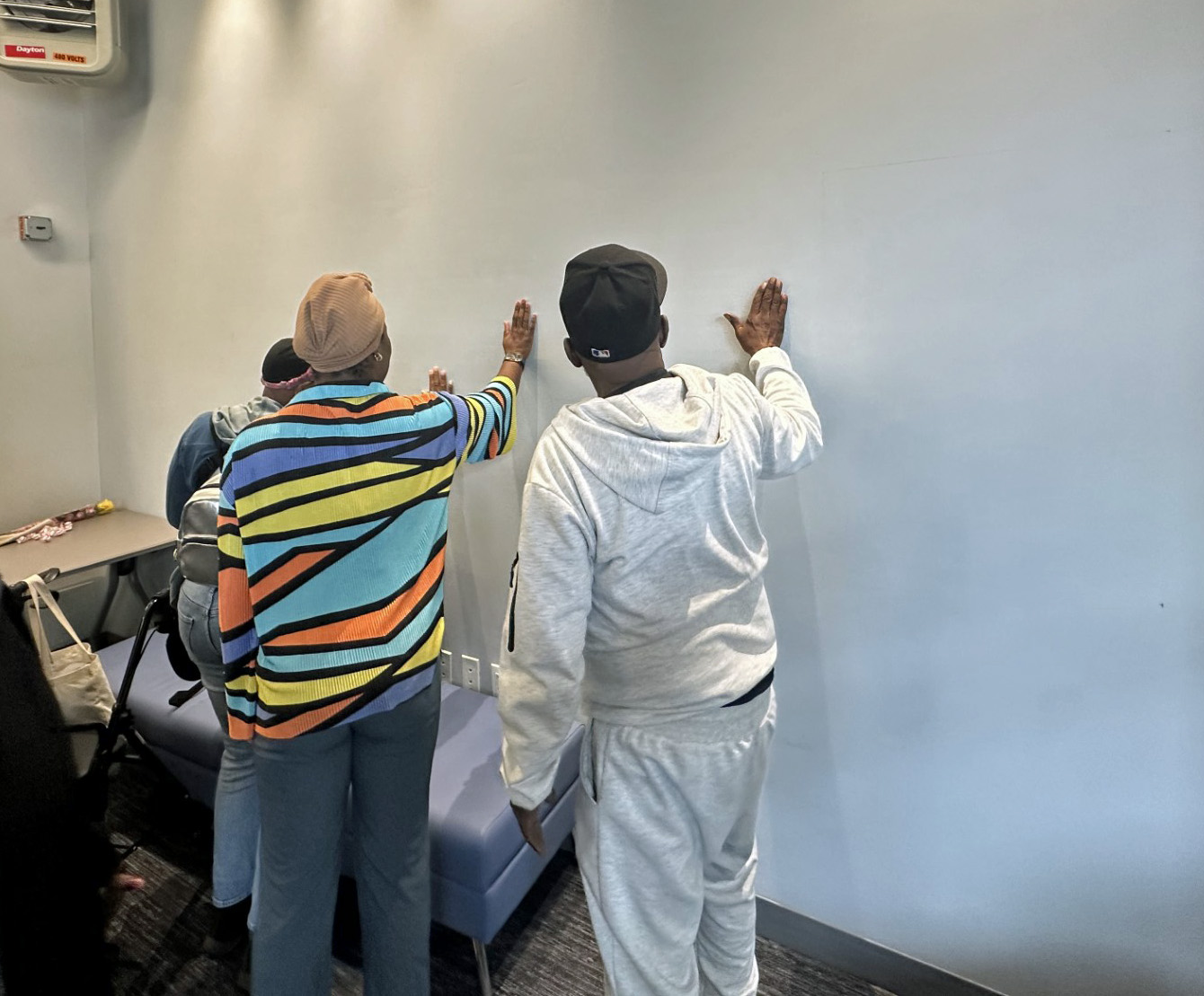Trace is an interactive installation created by artist Nyssa Chow.
This artwork is a memorial to the essential workers who tragically lost their lives in the early months of the COVID-19 pandemic in 2020. The piece involves one hundred names of these workers, each complemented by a dedicated phrase about the worker shared by their loved ones. Trace uses heat-sensitive paint so that the names and memories become visible when the wall is warmed by the touch of a hand. The use of touch reminds us of the barriers to touch in that period, as well as the fundamental, life-saving role that human connection and contact have in the face of loss. The names fade back into invisibility once the heat dissolves, evoking the temporary nature of memory and the fragility of life.
Trace is installed on the ground floor of CUNY SPH in collaboration with the Harlem Health Initiative (HHI), the New York City Preparedness and Recovery Institute (PRI), the CUNY SPH Foundation, and Manhattan Community Board 10. By placing Trace in the academic environment of CUNY SPH and the community-oriented environment of HHI, we hope to activate further reflection, education, and dialogue about this period. The installation offers stakeholders and the public a space for reflection, ongoing learning, collective organizing, and action.


